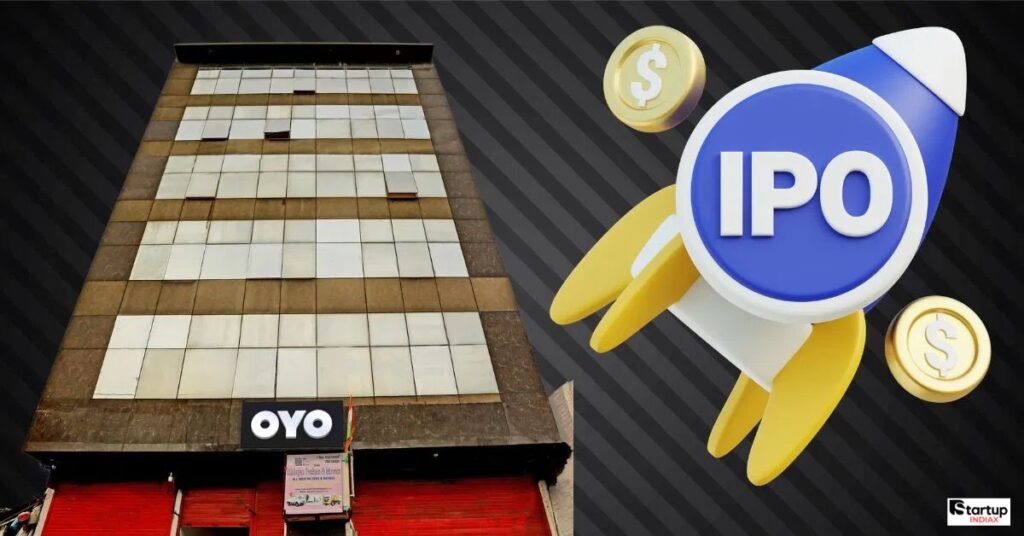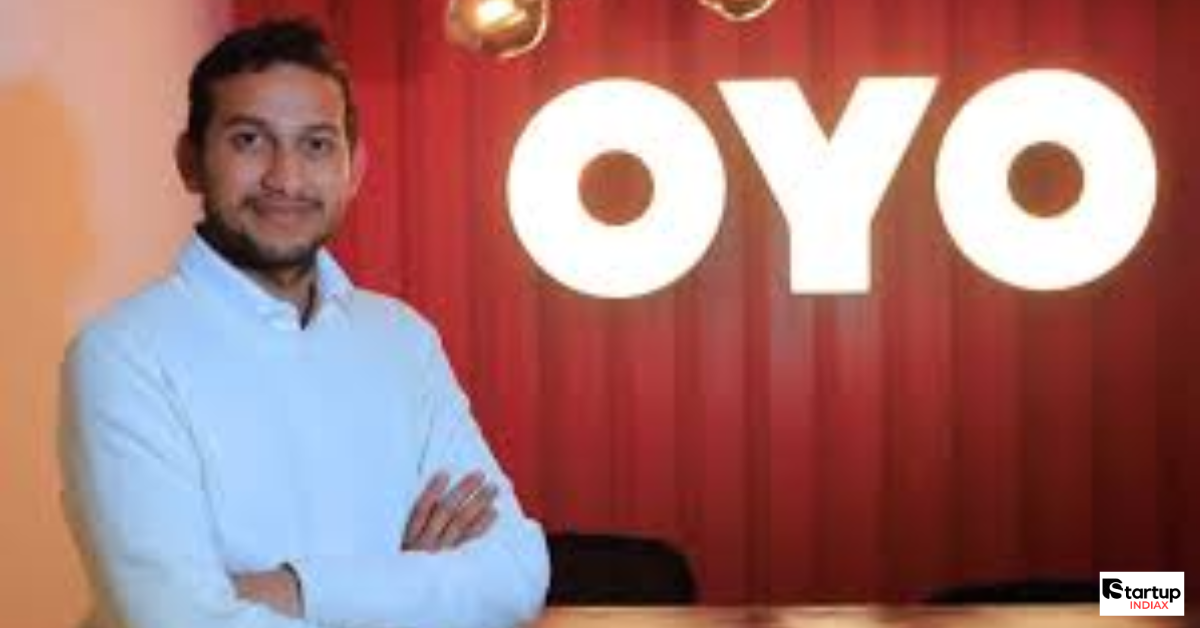IPO Amid market volatility, SoftBank, which holds 30% stake in OYO, has influenced the hospitality unicorn to delay its much-anticipated initial public offering (IPO) for the third time, pushing it to March 2026. This article dives into the reasons behind OYO’s IPO postponement, exploring market volatility, SoftBank’s concerns, and the startup’s financial challenges. We’ll also examine the broader IPO landscape in India, the implications for OYO’s stakeholders, and what lies ahead for the company. With a conversational tone, this 1500+ word blog breaks down complex financial moves into simple insights, offering a clear picture of why OYO’s stock market debut is on hold and how it reflects the cautious sentiment in today’s startup ecosystem.
IPO Amid Market Volatility: OYO Delays 2026 Listing as SoftBank Raises Concerns
Imagine you’re all set to throw a big party, but the weather forecast predicts a storm. You’d probably postpone, right? That’s exactly what’s happening with OYO, the Indian hospitality giant, as it delays its initial public offering (IPO) for the third time, now eyeing March 2026. The decision, heavily influenced by SoftBank, which holds 30% stake in the company, comes amid shaky stock markets and concerns about OYO’s financial health. Let’s unpack why this is happening, what it means for OYO, and how it fits into the broader startup scene in India.
Why OYO’s IPO is Delayed Again
IPO Amid market volatility isn’t a new story, but for OYO, it’s a recurring headache. The budget hotel chain has been trying to go public since 2021, only to hit roadblocks each time. This time, the delay stems from a mix of external and internal pressures. Posts on X and recent reports highlight that SoftBank, OYO’s largest shareholder, isn’t convinced the timing is right. The stock market’s wild swings in 2025—think Nifty dropping 4.3% since December—have made investors jittery. Companies like LG Electronics and Ather Energy have also scaled back or delayed their IPOs, signaling a cautious mood.

For OYO, the stakes are high. Founder Ritesh Agarwal has been pushing for a quick IPO to meet deadlines tied to a $2.2 billion loan he took in 2019 to increase his stake. That loan, personally guaranteed by SoftBank’s Masayoshi Son, has a repayment deadline looming in December 2025. Lenders might extend the timeline if OYO lists soon, but with markets in turmoil, SoftBank’s saying, “Not yet.”
The Role of SoftBank, Which Holds 30% Stake
SoftBank, which holds 30% stake in OYO, isn’t just a passive investor—it’s calling the shots. The Japanese conglomerate has a history of steering its portfolio companies through turbulent times, and OYO is no exception. Reports suggest SoftBank is worried about OYO’s shaky financials, including inconsistent profitability and high debt. In 2024, OYO reported a profit of ₹99 crore, but that’s a far cry from the scale needed to justify a $7 billion valuation in a volatile market.
SoftBank’s caution isn’t baseless. The investor has seen its bets on startups like WeWork and Zume falter, making it extra careful with OYO. By delaying the IPO, SoftBank is likely protecting its investment from a lackluster debut that could tank OYO’s stock price. After all, a weak IPO doesn’t just hurt the company—it dents SoftBank’s reputation and portfolio value. This move reflects a broader trend: big investors are tightening the reins on startups, pushing for stronger fundamentals before going public.
Market Volatility: A Tough Time for IPOs
IPO Amid market volatility is like trying to sail a boat in a storm. The global and Indian markets in 2025 are anything but calm. Foreign investors have pulled out ₹13,359 crore from Indian bonds, and the U.S. market is reeling from tariff uncertainties and weak GDP growth. In India, the Sensex and Nifty have been on a rollercoaster, with experts warning of a possible correction.
This isn’t just OYO’s problem. Ather Energy slashed its IPO size to ₹2,626 crore, while LG Electronics postponed its $15 billion listing. Even global players like StubHub and Klarna have hit pause on their IPO plans. The message is clear: investors are picky, and companies need to bring their A-game to the stock market. For OYO, the timing couldn’t be worse. Its budget hospitality model thrives on economic stability, but with travel demand softening and inflation biting, the market isn’t exactly rolling out the red carpet.
OYO’s Financial Struggles and Loan Pressures
Let’s talk numbers. OYO’s financials are a mixed bag. On one hand, it’s expanded globally, with over 1.5 million rooms in its network. On the other, its balance sheet tells a tougher story. The $2.2 billion loan Agarwal took in 2019 is a big weight, with repayment pressures mounting. Add to that OYO’s high operational costs and uneven cash flow, and you see why SoftBank, which holds 30% stake, is nervous.
The company’s valuation is another sticking point. OYO’s aiming for a $7 billion tag, but market volatility makes that ambitious. Ather Energy, for example, halved its valuation before its IPO, and OYO might face similar pressure. If the IPO flops, it could erode investor confidence and make it harder for OYO to raise funds later. SoftBank’s push to delay is a bet on OYO fixing its financial leaks—think cutting costs, boosting margins, and proving it can stay profitable.
The Bigger Picture: India’s IPO Landscape in 2025
India’s IPO market is a tale of two halves. In late 2024, IPOs were red-hot, with 20 offerings raising ₹27,000 crore since December. Some, like Wagons Learning, saw massive oversubscription, while others, like Kenrik Industries, struggled. But as 2025 rolls on, the mood is shifting. A Mint survey found 56% of experts expect IPOs to stay relevant but play a smaller role, with only 8.7% seeing them as a dominant theme.
Why the cooldown? Blame foreign investor sell-offs, slowing corporate earnings, and global uncertainties like U.S. tariffs. Retail investors, who fueled last year’s IPO frenzy, are also getting cautious. This doesn’t mean IPOs are dead—companies like Tata Capital and Canara HSBC Life Insurance are still filing papers—but the bar is higher. For OYO, this means waiting for a sunnier day when investor appetite matches its growth story.
What’s Next for OYO and Its Investors?
So, what’s the game plan? OYO’s likely spending the next few months polishing its financials. This could mean streamlining operations, doubling down on profitable markets like India and Southeast Asia, or even exploring mergers and acquisitions (M&As). The startup ecosystem is seeing more M&As as investors seek quicker exits, like Delhivery’s ₹1,407 crore buyout of Ecom Express. OYO might not go that route, but it’s a sign of the times.
For investors, the delay is a mixed bag. SoftBank, which holds 30% stake, gets more time to protect its investment, but smaller shareholders might be frustrated. Agarwal, caught between his loan obligations and SoftBank’s veto, faces the toughest squeeze. If OYO can use this delay to strengthen its fundamentals, the 2026 IPO could be a winner. But if market volatility persists, the wait might stretch even longer.
Conclusion: A Cautious Step in Uncertain Times
IPO Amid market volatility is a gamble, and OYO’s third delay shows it’s not ready to roll the dice. SoftBank, which holds 30% stake, is playing the long game, betting that a stronger OYO in a calmer market will pay off. For now, the hospitality giant is in a holding pattern, working to shore up its finances and win over skeptical investors. This isn’t just OYO’s story—it’s a snapshot of a startup world grappling with uncertainty. Will OYO’s 2026 IPO be a blockbuster, or will market storms keep it grounded? Only time will tell.

